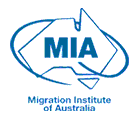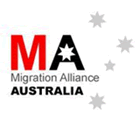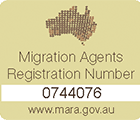Choosing a migration agent to represent your visa case can be a very tiring process. You often have to pay thousands of dollars for their services so it is absolutely essential that you pick the right agent for your case. This includes preparing oral and written submissions, helping clients secure a visa, etc.
Migration Agents also provide information and advice to potential migrants, prepare and lodge visa applications, and act as intermediaries to legally represent clients during visa processing and before review bodies. They ensure applicants meet the legal requirements of Australia’s immigration laws. In general, the consultants oversee all aspects of the visa and immigration process. They in general look at the following matters:
- Help clients obtain visas and other documentation
- Communicate with clients in person and in writing
- Ensure clients complete applications and submit them on time
- Ensure the client provides accurate and up-to-date information
- Prepare all fee quotes and any information required by clients, colleagues, or authorities
- Represent clients at tribunals and before administrative bodies, including Canadian visa offices abroad
- Advise clients of their legal rights and all matters related to immigration and citizenship law
- Research legal precedents and gather evidence regarding applicants’ claims about their home countries
- Help applicants manage relationships with lawyers
- Apply for appeals if applications are denied
Migration consultants Melbourne may need to help human resources personnel understand immigration rules. Those who work for post-secondary schools as advisors offer guidance to international students. Their duties can include helping students apply for work permits or permanent residence.
Role of a migrant consultant
A migrant consultant is a person who helps people to emigrate from one country to another country and through legal and documentation process to increase the chances of immigration for study, work, travel or business purpose. All migration agents are expected to:
- Act professionally, have a good knowledge of migration laws and perform in a timely manner
- Detail all costs involved (including written confirmation)
- Keep you up to date with the application and progress
- Keep information confidential
- Abide by the migration agents’ Code of
If you want professional help regarding your migration, you can use a migration agent registered with the Office of the Migration Agents Registration Authority (OMARA). Only registered migration agents and legal practitioners can charge for immigration assistance. The Register agents also includes registered agents working outside of Australia. You can search the Register by:
- Location
- Name
- The migration agent registration number (MARN).
Additionally, if you have a problem with a registered migration agent, and think they are unprofessional in providing their services or their fees are unreasonably high, you can report them to OMARA who will then penalize them. Unregistered migration agents have no regulatory force and if they act unprofessionally there is no office you can turn to, to report them.
Apart from OMARA registration, here are a few other things that you should keep into consideration when looking for a migration consultant;
- Check What Other Clients Have to Say About Them
- Meet the Agent Face-to-Face in a Consult
- Look for a Migration Agent with Experience
- Ask the Agent What Their Success Rate Is
Cost of using a migration agent
The OMARA website external link provides details of average fees charged by registered migration agents. Fees are usually determined between each client and their agent.
Under permanent visa category, different agents charged between $500 to $4000 for Partner migration. Another popular but temporary visa, 457, had a range between $1800 to $5000.
You can also withdraw the appointment of your migration agent at any time, even if you’ve already lodged a visa application. To do so, you and your migration agent will need to report the matter to OMARA in writing. If you appoint a new migration agent, this should also be notified to the department.
Student Visa Requirments
Collated to other countries, it is easier to get a student visa for Melbourne. Students willing to study in Australia should be able to meet a few requirements to qualify for a visa. Once you are enrolled in a full-time study course you can apply for a visa.
Student visa holder can:
- Enroll in an eligible course of study
- Bring family members to Melbourne
- Apply for the visa online in or outside Australia
- Travel to and from the country
- Work for up to 40 hours every two weeks once the opted course begins The duration of the via is for five years, you can apply for
Student visa details:
One can be eligible for a student visa only if they wish to pursue a registered course or part of it on a full-time basis. The maximum validity of the visa is five years. The course one wishes to pursue must be registered with the Common wealth Register of Institutions and Courses for Overseas Students (CRICOS).
- Issued an electronic Confirmation of Enrolment (eCoE) certificate
- Genuine Temporary Entrant (GTE) statement
- Four recent passport-sized photographs
- Certified or notarized copies transcript/document of academic results
- Overseas Student Health Cover (OSHC)
- Results of tests in the English language like IELTS, TOEFL, PTE if you are a non- native English speaker
- Evidence of monetary means for covering all expenses during the period of study
- If applicable, proof of civil status
- Your university will make you aware of additional requirements if any prior to your application
- Financial Requirements
- Character Requirement
How much does a student visa cost?
The fee for the Student Visa currently stands at AU$575 (~US$414). As a visa requirement, you will need to organize Overseas Student Health Cover for yourself and any accompanying family members, which needs to be valid for the duration of your stay.
How long does it take to get a student visa?
Processing times can vary based on which sector you’re applying for and it can take between: 75% of applications in 29 days; 90% of applications in 42 days for the Higher Education Sector. 75% of applications in 43 days; 90% of applications in 77 days for Vocational Education and Training Sector.






